Think of this as Volume 11, Number 35 of A-Clue.com, the online newsletter I’ve written since 1997. Enjoy.
I have a long-time grudge against someone who shares my last name. David Blankenhorn (right).
The other Blankenhorn runs something called the Institute for American Values, a wingnut front group. He is best known as the author of Fatherless America, where he argues for the obligation of fathers to stay with their kids.
I may resent him because of what my dad did. He stayed. He had demons, but he stayed. He was abusive, and he was a hound, but he stayed. He was miserable, he made us miserable much of the time, but he stayed.
I had two fathers coming up. One was a drunk who hit me and only expressed his love through things. The other was a small businessman who charmed his customers and managed his people.
Among my siblings I was the fortunate one. I spent most of my time growing-up with this second man. I called him Fred. But he wasn’t my dad. He was my boss. I filed, I stacked inventory, I went out on calls. It was a TV repair shop so I watched a ton of TV. My dad spent 66 hours a week at his shop, and what I learned was that if I didn’t get away from it I’d die.
Many years later, through the eyes of my own kids, I learned some of what drove him through the eyes of my own children. By then my old family was gone, they were all 3,000 miles away, and I had to find my own answers.
What I most resent about "the other Blankenhorn" is his idea that you have to stay, because I felt my dad should not have stayed. How much better might his life had been, might my life had been, if instead of sucking it up we just had his money, and my mom had a chance to find someone more compatible?
What my dad taught me was that a miserable marriage is worse than none at all. This was the opposite of what I heard from the other Blankenhorn. His teachings ran counter to everything I had come to know.
Then I had my own kids, and I learned something important.
Fatherhood is the very best part of life.
Fatherhood is an indescribable joy from the moment you learn you’re to become one until the day you finally die.
I grew up feeling commitment was a nasty word, a hard word, a life sentence. But it’s just the opposite. It’s a day by day opportunity to care and be cared for. It’s the human connection which makes life worth living.
Not that it’s always a pleasure.
Through my kids I have learned things about myself, and been forced to confront myself, in ways I could easily have avoided otherwise. I tried to care for my oldest by myself and nearly had a nervous breakdown after six months. I was forced into therapy and nearly lost my marriage. I suffered with my daughter’s dyslexia. I watched my son’s ADHD push him out of schools and camps.
It’s been tough. But it’s not something that happens all it once. It’s something that happens every day, day by day. Often day by painful day. Each day by itself can be survived. Some days you wonder how.
But that’s the joy.
Look at nature. Look at your wife or husband. All joy has pain inside it. Everything which makes life worth living carries pain inside it. Grief is the price we pay for love, but without accepting that price we can’t find happiness.
I have had friends who stayed single. One of the closest was Russell Shaw, who insisted he was happy until about a year before he died, when he found someone to commit to and learned what real joy can be. His face that last year had a completely different expression from what I had remembered in Atlanta, a glow. He was transformed by love, which forced him to change, and which gave him joy.
With kids, that’s all squared. Even on the hardest days, even when you hate their guts, it’s squared. You don’t know that until you have gotten through the crisis of the moment, but the joy is real. And unlike almost every other joy in life, it lasts.
That’s what "fatherhood" advocates like David Blankenhorn never understand, and never bother to explain. They want daddies to be the undisputed heads of their households, the lords of their manors, the masters of all they survey. Bullshit. There is no joy in that. My dad was the undisputed head of his household and it made him miserable. I just try to be part of the team.
My advice to all men is that, in an act of total selfishness, you reach for the greatest joy in life, fatherhood. You don’t need to get someone pregnant to gain it, and you don’t gain it by getting someone pregnant. You gain the joy by committing to it, and commitment is a day-to-day slog through diapers, parent conferences, homework, and endless slammed doors.
To be a good father you need to get off your high horse, forget the pretense of royalty, and commit to doing what your spouse says or your kids need. But this is the only way to true happiness, a joy which grows each and every day.
One of the hardest films I’ve ever had to watch is Will Smith’s The Pursuit of Happyness. It is, in many ways, a brutal film, which is why it didn’t make much money. It is a descent into the very edge of degradation, Smith’s Chris Gardner determined to "make good" but too proud to ask for anyone’s help, pretending to be corporate while sleeping in homeless shelters, dragging his kid (played by his own son Jaden) along for the ride.
It’s false because all the problems are Will’s. Jaden is just a kid. What I have learned in my life is there is no such thing as "just a kid." Every kid is different, with their own trips and dramas, their own strengths and weaknesses. Any kid will drive you crazy, if you commit to them. Watching the movie I had to wonder what went through the kid’s mind later, and what price the father paid for being so self-centered.
That might even be a better film.
Fatherhood, at its best, is a surrender of the self to a higher purpose, to someone else’s purpose. I know it scares people who haven’t done it, and it frightens others away because of its intensity. But it’s the best thing you’ll ever do — for yourself.
That’s the lesson. You try to be a good father for yourself, not for them. You give every day as an act of total selfishness, because giving of yourself brings you joy and fulfillment.
I put my dad’s demons to rest in 1997. He had been forced into retirement, and I dragged him (it seemed) across the country by first class airplane, to let him know his grandchildren, and to try and make peace with him. He didn’t give up his demons for me. Even as he left (and he played a passive-aggressive game with my wife so he’d feel forced to go) he remained closed within himself, sad and angry. Even though there had been moments when his old charm returned, as on a road in South Carolina when he talked a state trooper out of giving me a speeding ticket.
I tried to hug him at the airport. He flinched as though from a blow. He couldn’t take delivery. Joy, for him, was merely the absence of pain, and when life hadn’t beaten him up he beat himself up. His demons never left.
But mine finally did. I let them fly to California with him. If you really work at fatherhood, you will face your demons, stare them down, miniaturize them, and watch them fly away.
My dad was, in many ways, a negative example. He made me understand what Barack Obama said this week, about his father being a negative example and the power that can have. I am one of four children. We have had, between us, four marriages, no divorces, seven kids, and total commitment.
But the point is that in the end my dad saw suffering as a bad thing, and I have come to see it as I suppose mothers see birth pains, as the only way forward to the greatest joys life has to offer.
So that’s why I’m not a "fatherhood" advocate, but a feminist. Embrace pain because it’s the only true route to joy. I’m not saying be a masochist. But emotional and mental pain bring growth, growth is the essence of life, and what we all want, in the end, is a life worth living.


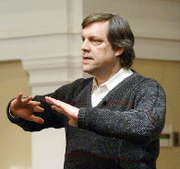
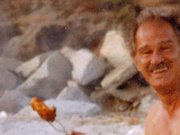
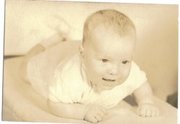

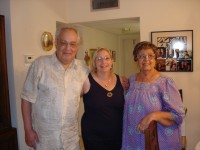
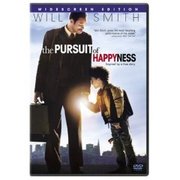
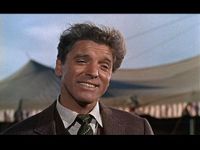








Wow. This is so perfect, and so true, that I just wanted to link to it on my blog.
Wow. This is so perfect, and so true, that I just wanted to link to it on my blog.
Hi Dana. I didn’t have a brutal father. The ones who were brutal were my three elder brothers. Our eldest was 15 years my senior. My eldest brother was brutal even to his kids. I could relate somehow with your story, but in a different light.
I think of myself as a fatherhood advocate, but along the lines which you have described as “feminist”: a father who is loving, less of a royalty but more of someone who cares for the growth of each member of the family. In the culture I belong, those qualities are not at all “feminist” but those of someone who takes leadership in his own household.
Nonetheless, I am happy about the freedom you have gained from the demons in your life. As to me, I am still in the process of letting go of mine, but I am confident of my chances.
Have a great day!
Hi Dana. I didn’t have a brutal father. The ones who were brutal were my three elder brothers. Our eldest was 15 years my senior. My eldest brother was brutal even to his kids. I could relate somehow with your story, but in a different light.
I think of myself as a fatherhood advocate, but along the lines which you have described as “feminist”: a father who is loving, less of a royalty but more of someone who cares for the growth of each member of the family. In the culture I belong, those qualities are not at all “feminist” but those of someone who takes leadership in his own household.
Nonetheless, I am happy about the freedom you have gained from the demons in your life. As to me, I am still in the process of letting go of mine, but I am confident of my chances.
Have a great day!